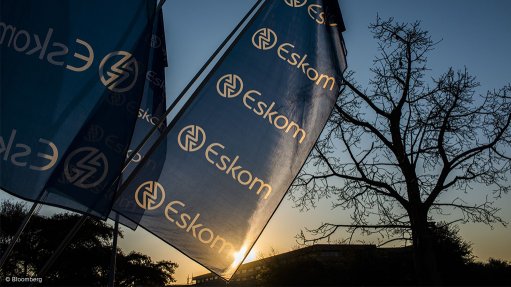Shame on you, AU and SADC
Ugandan President Yoweri Museveni famously excoriated the Organisation of African Unity (OAU) as a trade union of dictators. That was in the mid-1980s. Back then, he was leading an insurrection against his country’s autocratic government. He was frustrated by the seeming indifference of the OAU towards the suffering of Ugandans at the hands of a succession of dictatorships that ran the East African country from 1972 until Museveni’s ascension to power in January 1986.
Ironically, Museveni, who has been in power for 34 years, has become one of Africa’s most notorious dictators and an ardent member of the same ‘trade union’ he once maligned and its successor organisation, the African Union (AU).
Why the OAU was reluctant to highlight the excesses of errant African leaders becomes apparent when one reads its founding charter. Its raisons d’êter were to promote the unity and solidarity of African States, to cooperate in achieving a better life for the people of Africa, to defend member States’ sovereignty and territorial integrity, to eradicate colonialism and to promote international cooperation.
Enter the AU. Its Constitutive Act is devoid of the anticolonialism rhetoric of the OAU, which it replaced in 2002. Instead, its objectives include ensuring that Africa enjoys security and stability, promoting democratic principles and institutions, and facilitating popular participation and good governance, as well as protecting people’s rights.
But these lofty ideals are not reflected in some of the AU’s behaviour. Cases in point include the election of characters with repugnant democratic records – such as the late Robert Mugabe and Equatorial Guinea’s Teodoro Obiang Nguema – as chairpersons of the organisation.
The AU and its regional affiliate – the Southern African Development Community (SADC) – have all too frequently endorsed elections that are patently flawed. The latest was the re-election of Peter Mutharika as President of Malawi in May 2019. That election was annulled by the country’s Constitutional Court this month. The grounds for that decision included the use of Tipp-Ex correction fluid to amend tallying forms after they had been signed off by political party agents, polling officials sending the wrong copy of results sheets to the main tallying centre, and mathematical errors in a small number of cases.
This is not sophisticated rigging at all; it is rough-hewn stuff. But, while vote counting was ongoing, the AU observer mission rushed to tell the world that it had “concluded that the 2019 tripartite elections have provided Malawians with the opportunity to choose their leaders at various layers of government in accordance with the legal framework for Malawi and in accordance with principles espoused in the various instruments of the AU”. It added: “The elections took place in a peaceful environment and, at the time of this statement, the mission had not noted any serious concerns with the process, either witnessed or observed.”
The observer mission’s statement was later reaffirmed by the AU Commission’s head honcho, Moussa Faki Mahamat.
For its part, the SADC observer mission hailed the “professional manner” in which the Malawi Electoral Commission had conducted itself during the electoral process.
The Pipe Smoking One (aka Thabo Mbeki), as the talking head of the Commonwealth observer team, also weighed in, stating: “The opening, voting, closing and counting processes at polling stations have been handled with professionalism and dedication.”
But I did not expect much from The Pipe Smoking One. He is the same fellow, who, in 2008, declared that there was no crisis in Zimbabwe, at a time when Zanu-PF militia, stung by Mugabe’s loss during the first round of voting, were brutalising opposition supporters.
Now that he has taken over as AU chairperson, President Cyril Ramaphosa should ensure that the continental body’s change of name translates into a new way of doing things.
Article Enquiry
Email Article
Save Article
Feedback
To advertise email advertising@creamermedia.co.za or click here
Press Office
Announcements
What's On
Subscribe to improve your user experience...
Option 1 (equivalent of R125 a month):
Receive a weekly copy of Creamer Media's Engineering News & Mining Weekly magazine
(print copy for those in South Africa and e-magazine for those outside of South Africa)
Receive daily email newsletters
Access to full search results
Access archive of magazine back copies
Access to Projects in Progress
Access to ONE Research Report of your choice in PDF format
Option 2 (equivalent of R375 a month):
All benefits from Option 1
PLUS
Access to Creamer Media's Research Channel Africa for ALL Research Reports, in PDF format, on various industrial and mining sectors
including Electricity; Water; Energy Transition; Hydrogen; Roads, Rail and Ports; Coal; Gold; Platinum; Battery Metals; etc.
Already a subscriber?
Forgotten your password?
Receive weekly copy of Creamer Media's Engineering News & Mining Weekly magazine (print copy for those in South Africa and e-magazine for those outside of South Africa)
➕
Recieve daily email newsletters
➕
Access to full search results
➕
Access archive of magazine back copies
➕
Access to Projects in Progress
➕
Access to ONE Research Report of your choice in PDF format
RESEARCH CHANNEL AFRICA
R4500 (equivalent of R375 a month)
SUBSCRIBEAll benefits from Option 1
➕
Access to Creamer Media's Research Channel Africa for ALL Research Reports on various industrial and mining sectors, in PDF format, including on:
Electricity
➕
Water
➕
Energy Transition
➕
Hydrogen
➕
Roads, Rail and Ports
➕
Coal
➕
Gold
➕
Platinum
➕
Battery Metals
➕
etc.
Receive all benefits from Option 1 or Option 2 delivered to numerous people at your company
➕
Multiple User names and Passwords for simultaneous log-ins
➕
Intranet integration access to all in your organisation

















